Art & Exhibitions
A New Gagosian Show Shines a Light on Basquiat’s Lesser Known L.A. Period
“Jean-Michel Basquiat: Made on Market Street” opens at Gagosian LA this week and a spate of the late artist's other projects are in the works.
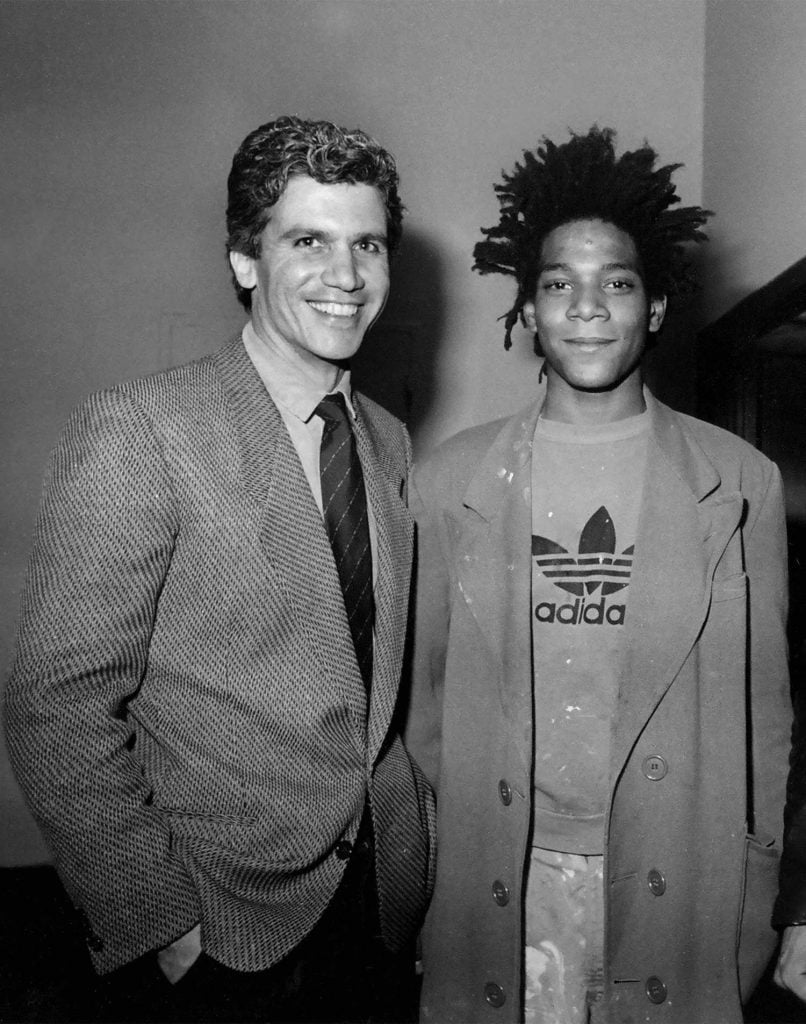
Another wave of Basquiat-fever is about to crest over the art world this spring, with a soon-to-open blockbuster show at Gagosian Gallery’s Beverly Hills outpost in Los Angeles, along with a major accompanying exhibition catalogue. It’s just one of many Basquiat projects on the horizon for 2024.
At a time when it seems the world can’t get enough of Basquiat—the two projects promise to further deepen appreciation and understanding of the artist’s brief but fascinating and dynamic life. As most fans know, he skyrocketed to fame in the New York art world in the 1980s and died at the age of just 27, in 1988.
Then, of course, there’s his market. Basquiat’s current auction record (set at Sotheby’s in 2018) clocks in at a cool $110.5 million, with the second highest auction result not far behind at $93 million, paid at Christie’s New York in 2021. To date, five Basquiat works have fetched above $50 million each at auction. Since 2005, searches for Basquiat on Artnet’s Price Database have skyrocketed; just last year, he was the 8th most-searched artist, keeping company with the likes of Pablo Picasso and Andy Warhol. Last year also marked the opening of the stellar show “Basquiat: KIng Pleasure” which debuted in New York at the direction of the Basquiat Estate and later traveled to Los Angeles. If ever there was proof that the artist’s star is burning bright as ever, and reaching a new fan base, it’s the news that Taylor Swift’s beau, pro football player Travis Kelce, is helping to finance a new documentary on the artist.
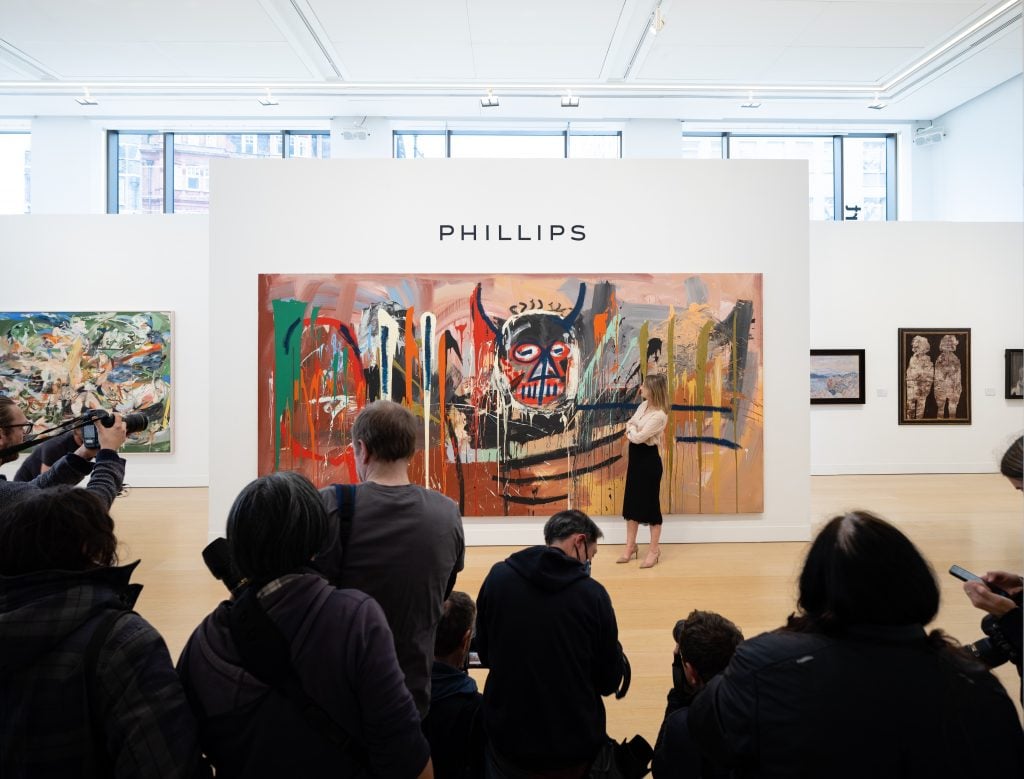
Basquiat’s Untitled unveiled in Phillips London. Courtesy of Phillips.
Taken together, the forthcoming Gagosian show and its accompanying catalogue will highlight Basquiat’s lesser-known L.A. period. That’s because, although the artist is often closely associated with New York City and Brooklyn, where he came of age in the heyday of street art and hip-hop, the Gagosian show delves into the heady time he spent in California, where, with the direct support and enthusiasm of the dealer himself (he even had the artist live temporarily at his townhouse with then-girlfriend Madonna) and others, the artist flourished and met a host of like-minded creatives and other artists during his time there.
Meanwhile, Rizzoli is set to release a major monograph on the artist this May, titled “Jean-Michel Basquiat: The Iconic Work,” by Dieter Buchhart, the Vienna-based curator and Basquiat expert who has already published numerous books on the artist. The book also serves as the exhibition catalogue to “Jean-Michel Basquiat,” the major exhibition that took place at the Brant Foundation in 2019. That Dieter-curated show delved into the myriad sources of inspiration that influenced Basquiat and his work, ranging from jazz, anatomy, sports figures, comics, classical literature, the African diaspora, and art history. Reflecting on that 2019 show, Brant Foundation founder Peter Brant said, “It was an honor to inaugurate The Brant Foundation’s East Village space by bringing these important works back to the very neighborhood where Basquiat lived and worked, and to share his legacy with the community that was fundamental in shaping it.”
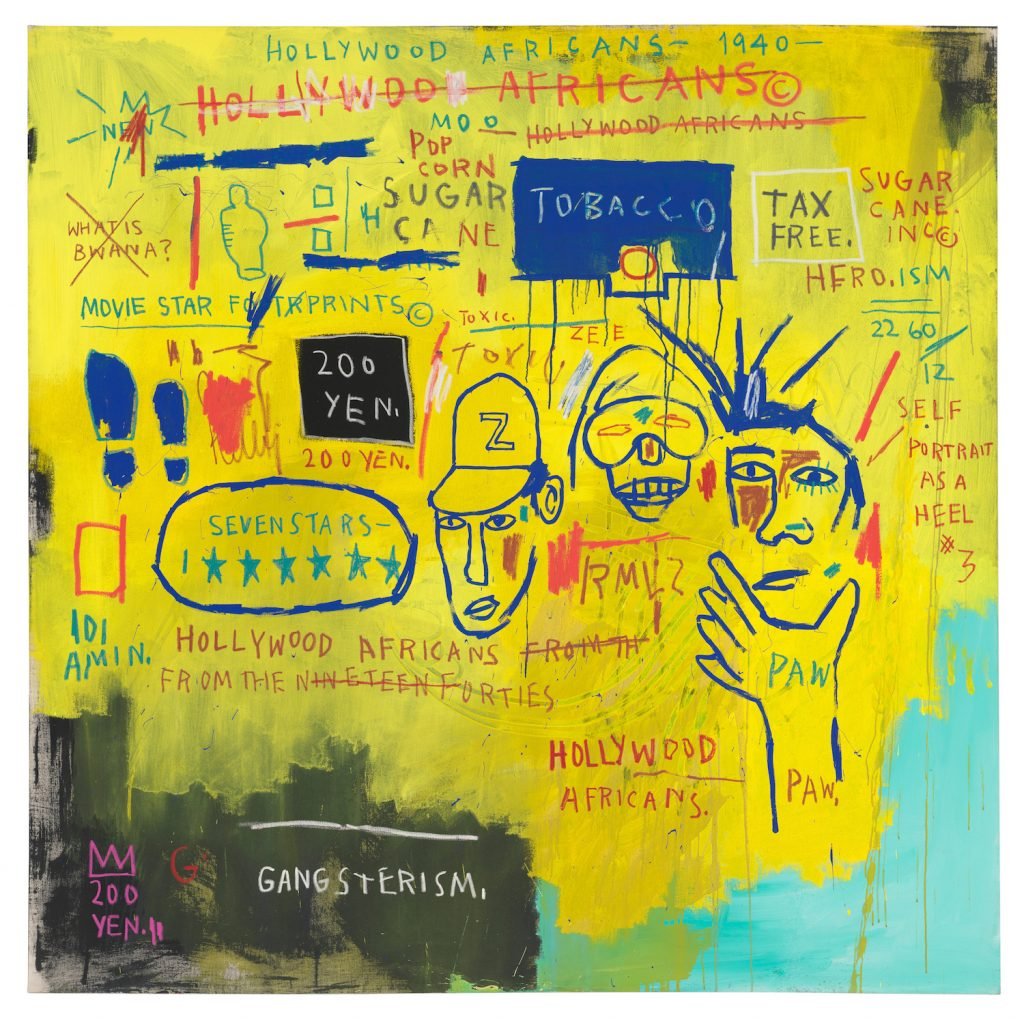
Jean-Michel Basquiat, Hollywood Africans, (1983). © Estate of Jean-Michel Basquiat. Licensed by Artestar, New York. Photo: © Whitney Museum of American Art/Licensed by Scala/Art Resource, NY
Image courtesy Gagosian.
Jumping back to the West Coast for a moment, the show, titled “Jean-Michel Basquiat: Made on Market Street” (March 7–June 1), is curated by Gagosian and Fred Hoffman, owner of New City Editions, a Venice-based prints and multiples publishing company, who worked closely with the artist in the early 1980s to create now iconic editions.
“For an artist who has long been affiliated with New York, Jean-Michel was surprisingly productive during the time he spent in California—he created nearly one hundred works of art in two different studios near the beach on Market Street in Venice over a two-year period, between 1982 and 1984,” Gagosian writes in the introduction to the catalogue. The show will reunite 30 works produced in Venice, including loans from major collections such as the Broad Museum, MoMA, and the Whitney Museum in New York
Gagosian first met the artist in 1981 at dealer Anina Nosei’s Soho space and immediately offered him a show, which took place the following year, at the North Almont space in Los Angeles. Gagosian hosted a second solo LA exhibition at a larger space, in 1983.
It was in 1982 that Hoffman also met Basquiat, and together the next year they produced six editioned prints including Tuxedo and Untitled, large-scale silkscreens on canvas that feature vibrant colors as well as the clusters of allusive phrases that became one of the artist’s signature marks.
The book includes a written transcript of a panel discussion held in LA in August 2023, between Basquiat’s two sisters, Lisane Basquiat and Jeanine Heriveaux, Gagosian, Hoffman, and filmmaker Tamra Davis who spent a good deal of time with the artist while he was in L.A. and in 2010 released the documentary, “Basquiat: The Radiant Child.“
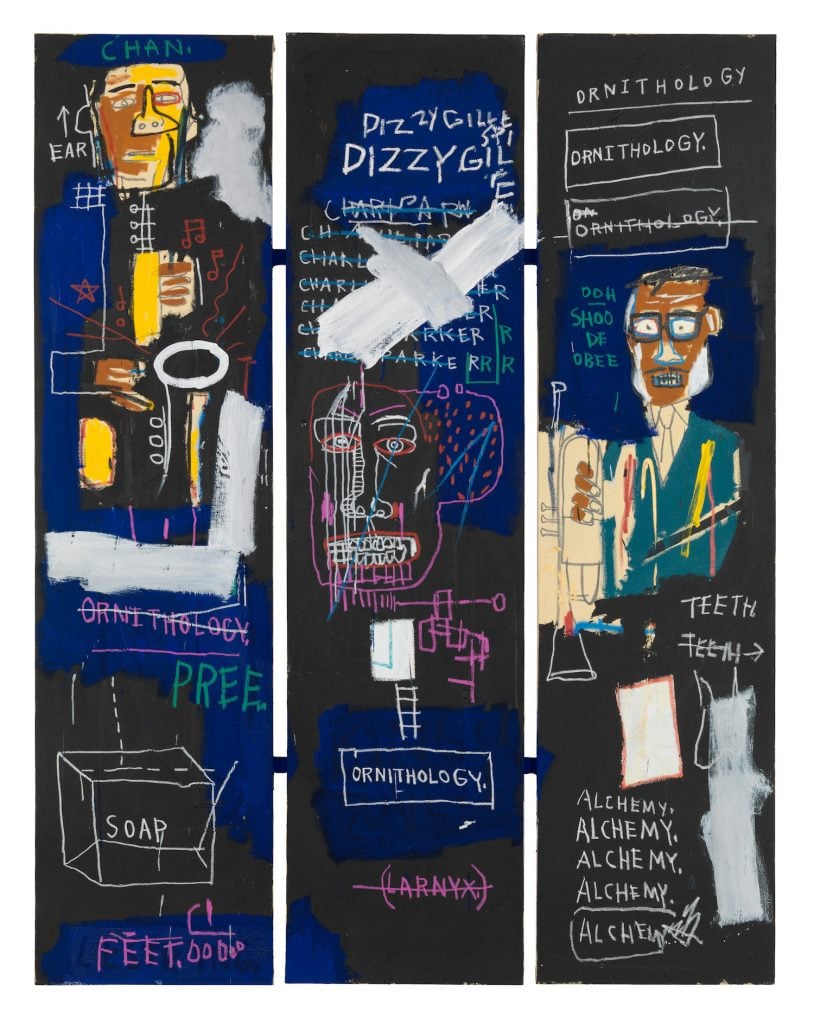
Jean-Michel Basquiat Horn Players, (1983). The Broad Art Foundation. Image courtesy Gagosian Gallery.
Asked about the first time he ever saw Basquiat’s work, Gagosian said: “I saw five or six paintings—and they stopped me cold in my tracks. I mean, my hair stood on end. I was just transfixed by these paintings and how powerful and original they were.”
Noting that it has been more than four decades since he met the artist, Gagosian called it “astonishing” to see the impact that his art and legacy have had across the cultural realm, adding that his influence is present everywhere. On a personal note, he writes, the show “has allowed me to relive the time I shared with Jean-Michel in California and to think back to when we were young and first getting to know each other in the early 1980s. I could see it then. Today his mark is one of the most widely recognized and celebrated in the world.”
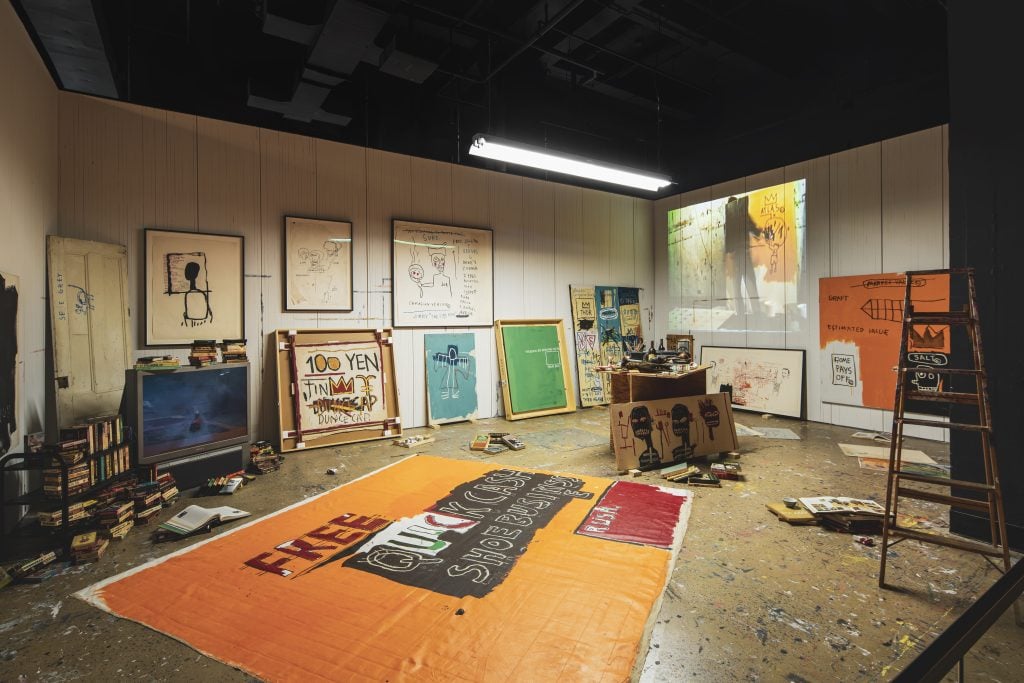
Installation view of “Jean-Michel Basquiat: King Pleasure.” Photo by Ivane Katamashvili, courtesy of the Jean-Michel Basquiat Estate.
Following this West Coast deep dive, Rizzoli’s May release will yield even more insight to the artist’s broader oeuvre once again. According to Buchhart, Basquiat “took the 1980s art world by storm: first New York, then Europe and the entire world.”
The book delves into 100 works and explores both the inspiration and creation process behind them. Buchart describes the artist’s work as “symbolically charged, highly complex, [and] angry.”
“Thirty-five years after Basquiat’s death,” Buchart continues, “his works and their unmistakeable aesthetic attract the highest attention on both the art market—achieving record prices on the secondary market and at auction—and in art historical writing.”





